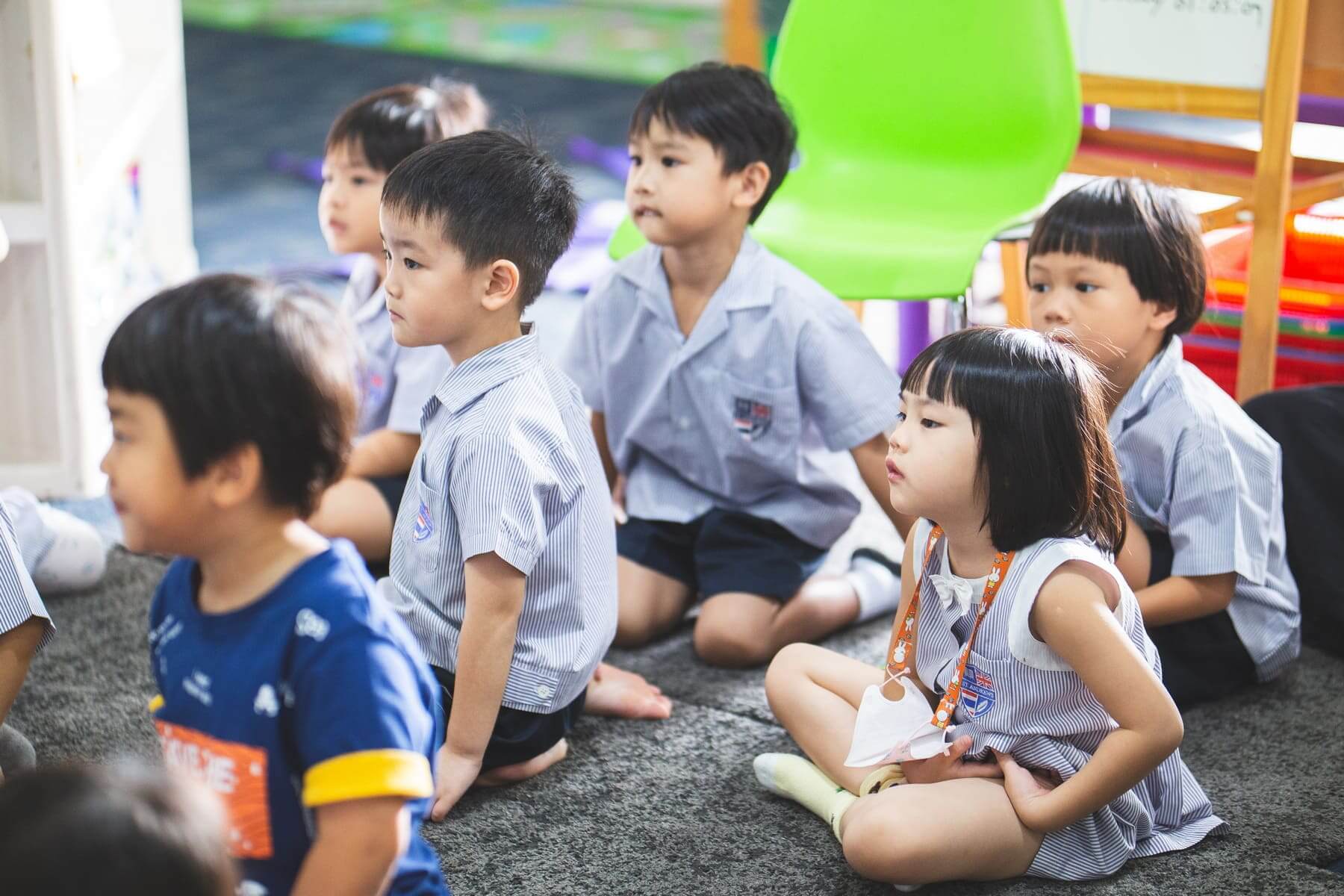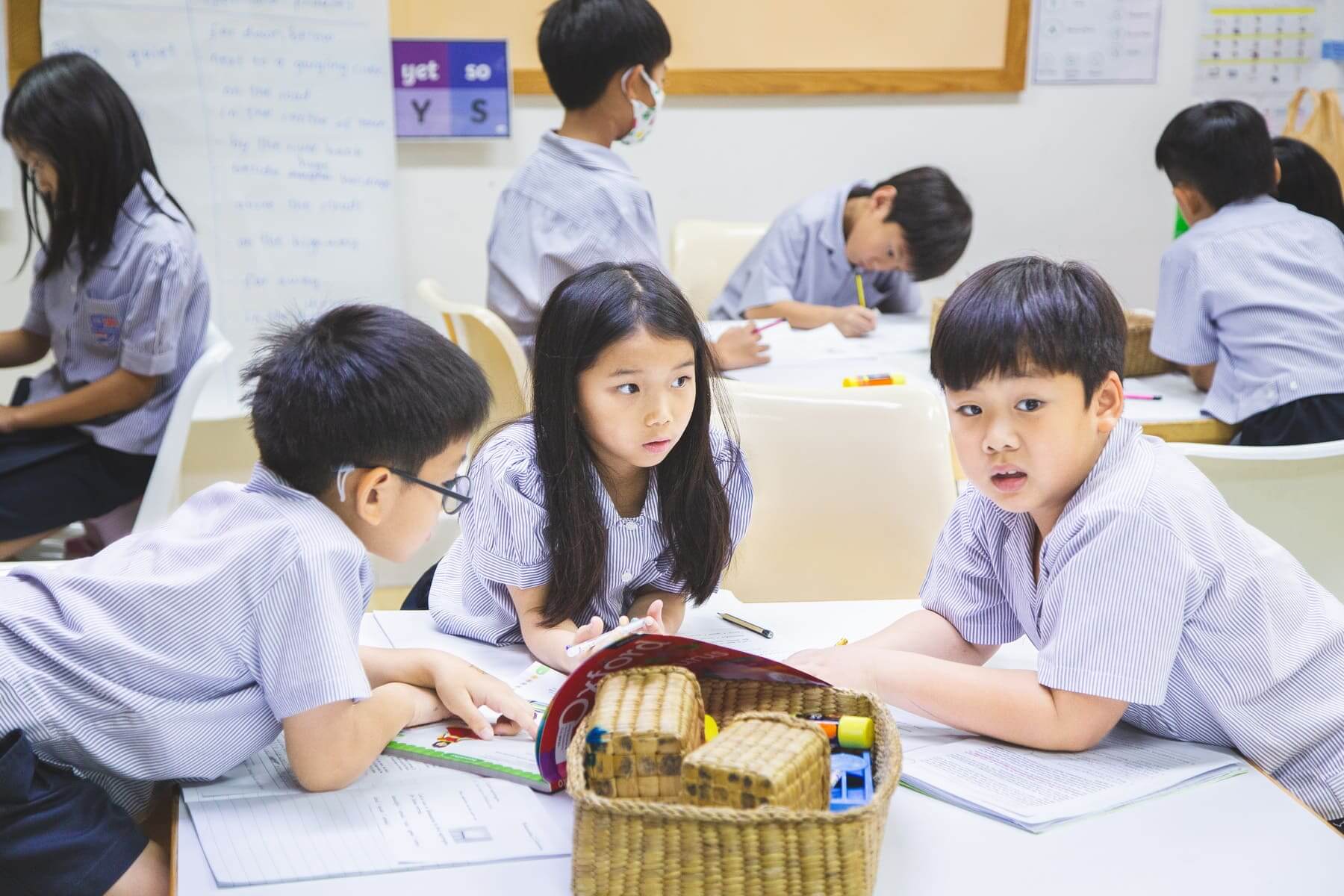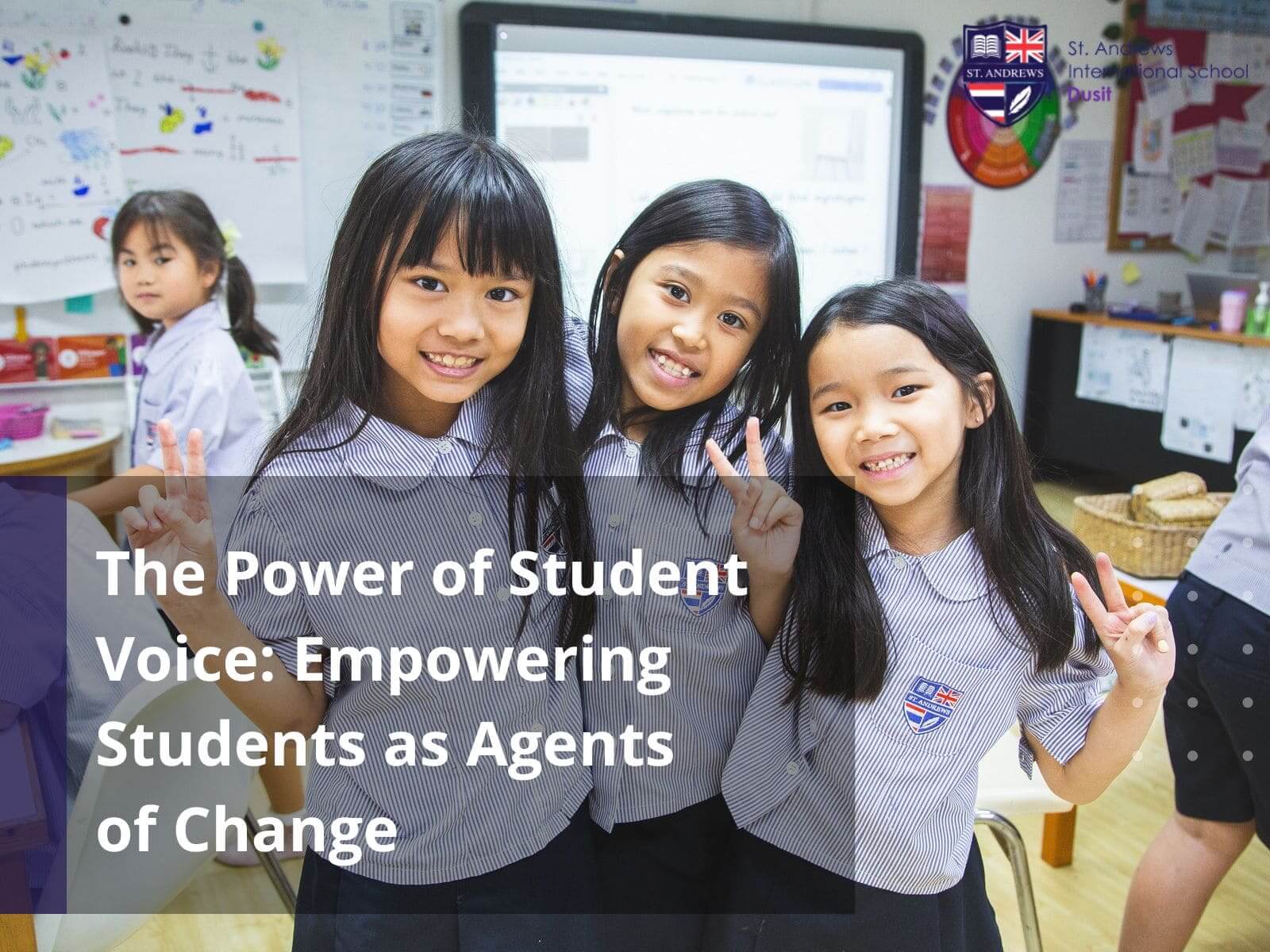At St. Andrews Dusit British International School in Bangkok, we prepare your children with the responsibility of inheriting the world in the future by empowering them with their own voice and turning them into agents of change.
We’re able to achieve this by following a holistic approach to education that ultimately taps into their full potential early on while developing every facet of their being.
In other words, St. Andrews Dusit isn’t the type of school that’s only focused on academics and rote memorisation. We’re also dedicated to turning our young learners into full-on future leaders—the so-called inheritors of the world.
Giving children from the ages of 2 to 11 a voice doesn’t only empower them and makes them feel like they’re making a difference. It also fosters empathy and a feeling of civic responsibility to their fellow pupils.
Empowerment also helps teach them about the consequences of empowerment and how they should use this collective voice to better themselves and their community at large.

Why Schools Should Empower Their Young Ones to Make Them Agents of Change
The future of education depends on a given school’s ability to empower every child’s voice, thus ensuring that their perspectives shape a more responsive, inclusive, and cooperative educational system when all is said and done.
We empower the children by hearing out their thoughts and opinions at a level suited for them, of course. Before you can learn how to run, you need to first learn how to walk.
In turn, children need to learn what empowerment and having their voices heard entails on a child or pupil level before moving on to empowerment on a teenager or adult level as well as a collegiate or workforce level.
In normal public grade school, high school, or even community college education, children often have a more passive role in learning. They’re receptacles for knowledge spoon-fed to them by their teachers, thus they have to learn empowerment later in life.
However, there’s a paradigm shift towards the inherent transformative potential of children being active learners and having more of a voice towards how they learn.
Indeed, international schools like ours at St. Andrews Dusit know that these young minds can also become active contributors to their own learning process, thus allowing them to retain knowledge better.
Even children can have the freedom of learning as their collegiate counterparts have while still learning to have a voice at the elementary grade.

How to Amplify and Empower the Voices of School Children Even at a Young Age
This practice of giving children a voice on their subject matter is another application of St. Andrews Dusit’s holistic learning because it involves them learning holistically and actively.
On that note, it’s vital that they also respect and appreciate differences as part of an inclusive, global future. Instead of defaulting into tribalism, it’s better they become considerate community leaders who appreciate the planet’s diversity of cultures.
According to Article 12 of the United Nations Convention on the Rights of the Child (United Nations 1989), it is the right of children to express their views in matters that affect them.
The biggest application to giving children a voice is through developing their problem-solving skills. This involves independent research and critical thinking instead of being spoon-fed answers by their teacher.
Giving children a voice is a definite departure from traditional hierarchical structures where the youngest have to always defer to their seniors until they themselves become seniors.
It’s also our priority to teach these school children the importance of collaborative work to propose solutions and address challenges. They’re more likely to enact change by becoming part of something bigger, like having an active voice in their community or society at large.
Collaboration, critical thinking, and considering the welfare of the collective as well as the individual are the ways we at St. Andrews can empower children to have a voice and become agents of change in the future.
The Benefits of Giving School Children a Voice When Learning in School
We’ve observed that children are more thrilled to express ideas and opinions when they’re allowed to deal with education in an explorative and empowered way.
Our teachers mainly serve as guides rather than the absolute unquestionable authorities. The children are also allowed to engage with the subject in their own unique way to truly comprehend it in ways no mere textbook could teach them the topic.
It’s beneficial for the young learners to connect with the curriculum on a personal level in order to foster genuine interest and engagement in what’s being learned on hand.
Empowerment on that front gives the children enhanced problem-solving and critical thinking skills. Instead of merely copying what the teacher wrote or said, they can comprehend or understand how the answer relates to the question or problem.
They’ll be taught creative writing, information analysis, taking different points of view into consideration, and forming well-reasoned arguments on top of having an informed opinion.
It also involves active participation in class discussions and having a say on the decision-making process. This encourages children to practise critical thinking when tackling various topics and issues.

For Children to Become Agents of Change, They Need to Be Empowered Enough to Enact Change
Here at St. Andrews Dust, we recognise and harness the unique perspectives of our children as we all collectively embark towards educational processes that don’t only cater to the diverse needs of our learners but also instil in them empowerment.
Giving children ages 2 to 11 the chance to feel a sense of ownership in how they learn will allow them to become more receptive to developing themselves for the better.
Furthermore, the sooner they’re able to unleash their latent learning potential and achieve a positive change in themselves, the more likely they’ll become agents of change to others in the community and society at large.
Having teachers engage the young ones with questions and being open to different approaches to the same problem to amplify their voice should lead to improved motivation and engagement.
When children feel like they’re being heard and have their opinions valued or validated, they’ll become more confident in themselves and more engaged in the learning process.
We let the children have a say in their education, especially when it comes to essays, problem solving, and open communication. Anything involving creative exploits should involve having the child express themselves and their imagination.
These young minds should be allowed to explore and think out of the box while still staying on topic and covering all the basics of their academics and literacy.

When Push Comes to Shove
It’s our mission as part of the St. Andrews Dusit family to assist young minds in realising their full potential through holistic learning and empowering them enough to enact small-scale change in their learning.
This will help them practise large-scale change in the future when these children grow up and develop to become the leaders of tomorrow.
Empowerment will also help instil in them the values of caring for the needs of their family, town, city, and/or nation as they grow up from childhood to fully realised adulthood.
St. Andrews Dusit International School belongs under the umbrella of the Cognita School Group. This international organisation manages schools all over the world, including Asia, the Americas, and Europe.
Make an appointment to avail of St. Andrews Dusit’s campus school tour to learn what our school has to offer to your children in person. For your convenience, you also have the option to visit our website and experience our personalised virtual campus tour.



